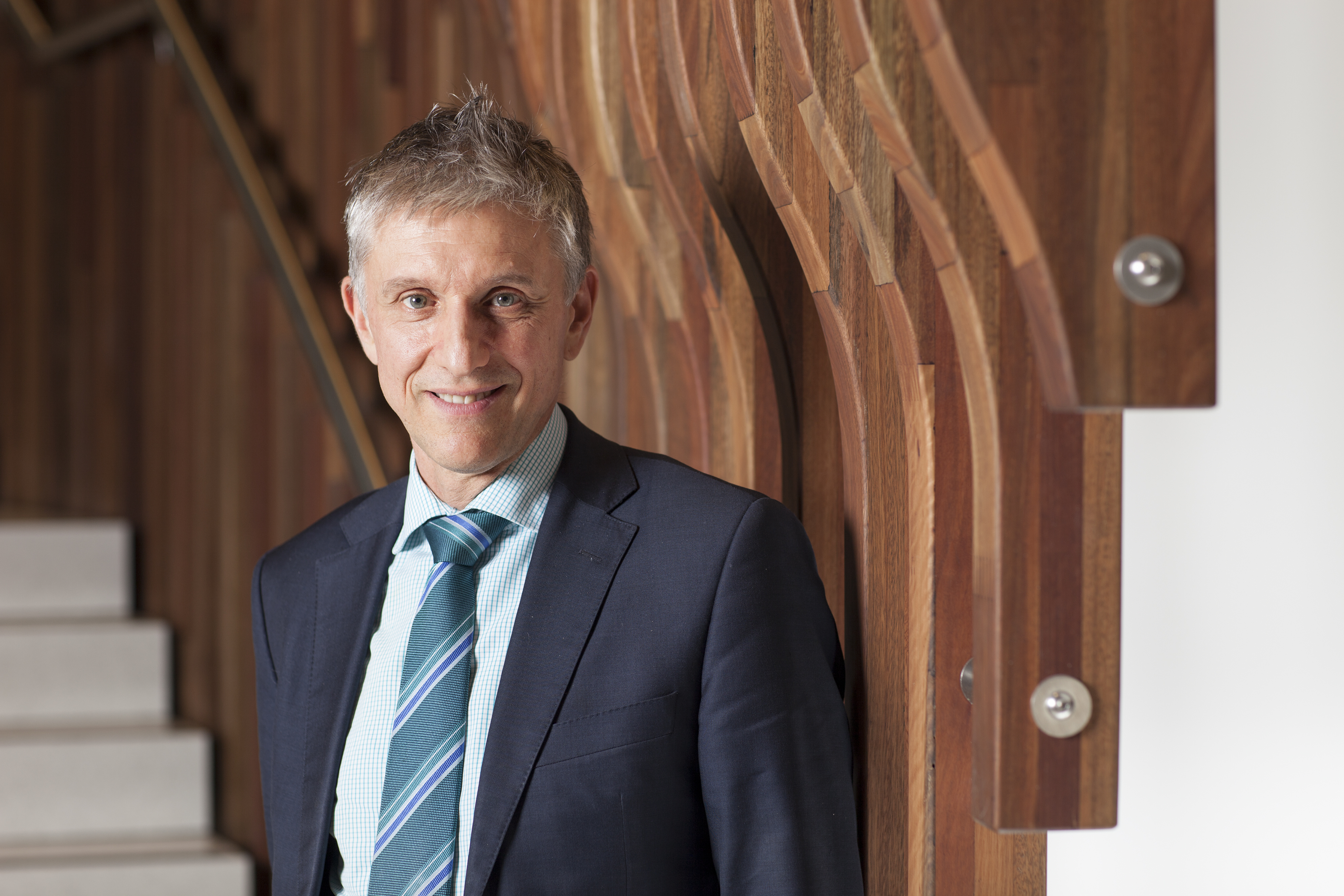
Professor Grant McArthur is the executive director at the Victorian Comprehensive Cancer Centre
For someone whose day job is to ‘foster collaboration and bring people together’, individual recognition for an outstanding contribution to medical oncology in Australia can sit a little uncomfortably.
Professor Grant McArthur, executive director of the Victorian Comprehensive Cancer Centre (VCCC) and the 2017 recipient of the MOGA-Novartis Oncology Cancer Achievement Award, is quick to acknowledge the dichotomy.
“I am humbled to receive an honour that many well respected colleagues have received in the past – even though the whole nature of our research is a team effort.”
Professor McArthur is still relatively new to the top job at the VCCC – an alliance of 10 institutions dedicated to cancer control. As such, he was happy to be one of 20 clinicians and researchers in the VCCC & Melbourne Business School Leadership Program this year.
“You’ve got to be able to bring together different skills, especially in the area of cancer research which is now so multidisciplinary. Developing leadership skills is important in collaborative and alliance networks.”
Professor McArthur, whose career has focussed on research and treatment of melanoma, told the limbic he was fortunate to be involved in early work on the BRAF oncogene and its inhibitors such as vemurafenib.
“One of the two most significant advances in our understanding of the disease was the discovery of the BRAF oncogene which causes melanoma and is required for maintaining the viability of melanoma.”
“However there are a number of challenges remaining including the problem of resistance to BRAF targeted therapies,” he said.
Professor McArthur said another challenge was in making a paradigm shift to a better model for clinical trials.
“Instead of small focussed trials testing one treatment at a time, we need to be testing multiple hypotheses at a time with large platform trials.”
As well as being more efficient from a research point of view, such a system would also be more patient centric – provide patients with sequential access to multiple therapies including combinations of therapies.
Professor McArthur will deliver the 2017 Cancer Achievement Presentation at MOGA’s Annual Scientific Meeting in Melbourne on Thursday, 3 August.